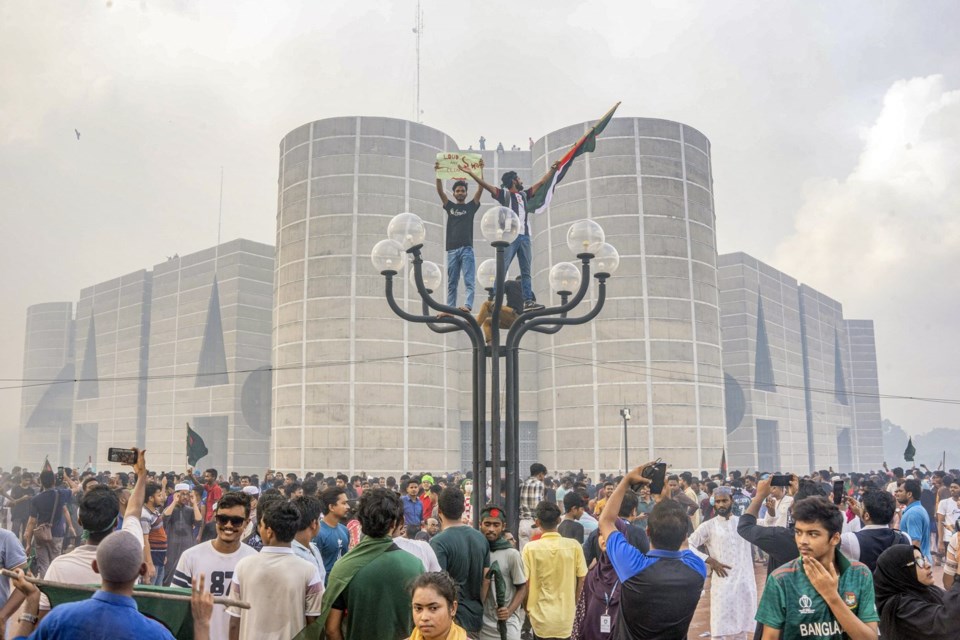Bangladesh parliament dissolved after PM Sheikh Hasina’s shock exit

In a stunning turn of events, Bangladesh’s political landscape has undergone a significant transformation. Prime Minister Sheikh Hasina, a towering figure in Bangladeshi politics, has abruptly resigned, leading to the dissolution of the national parliament. This unexpected development has sent shockwaves across the nation and the international community.
Key Points:
- Prime Minister Sheikh Hasina resigns suddenly.
- National parliament dissolved immediately after her resignation.
- Political stability in Bangladesh at a crossroads.
- Immediate impact on the ruling party and opposition.
- Reactions from international leaders and organizations.
- Implications for Bangladesh’s future governance.
The Resignation of Sheikh Hasina
Prime Minister Sheikh Hasina’s resignation has taken the nation by surprise. Known for her strong leadership and political acumen, Hasina has been at the helm of the Awami League and the country’s government for over a decade. Her decision to step down was unexpected, leaving many to speculate about the reasons behind it.
Key Aspects of Hasina’s Resignation:
- Hasina announced her resignation in a televised address.
- She cited personal reasons and the need for new leadership.
- Her resignation speech was brief but poignant.
Immediate Dissolution of Parliament
Following Hasina’s resignation, the national parliament was dissolved. This move, although constitutional, has added to the political uncertainty in Bangladesh. The dissolution means that all legislative activities are halted, and the country is set for early elections.
Key Points on Parliament Dissolution:
- The dissolution was executed immediately after Hasina’s resignation.
- This move paves the way for early elections.
- The political vacuum created by this dissolution is significant.
Political Stability in Question
With the resignation of Sheikh Hasina and the dissolution of parliament, Bangladesh’s political stability hangs in the balance. The ruling party, Awami League, must now navigate this period of uncertainty and prepare for upcoming elections. The opposition parties, particularly the Bangladesh Nationalist Party (BNP), see this as an opportunity to gain ground.
Key Points on Political Stability:
- The Awami League faces a leadership crisis.
- Opposition parties are mobilizing for the upcoming elections.
- Political analysts predict a period of intense political activity.
Reactions from International Leaders
The sudden political changes in Bangladesh have garnered international attention. Leaders from around the world have reacted to Hasina’s resignation and the dissolution of parliament, expressing concerns and hopes for a stable transition.
Key International Reactions:
- The United Nations called for peaceful and fair elections.
- Neighboring countries, including India, expressed hopes for stability.
- Western nations emphasized the importance of democratic processes.
Implications for Future Governance
The resignation of Sheikh Hasina and the dissolution of parliament have significant implications for Bangladesh’s future governance. The upcoming elections will be crucial in determining the country’s political direction and stability. The new leadership will face challenges in maintaining economic growth and social stability.
Key Points on Future Governance:
- The elections will shape the political landscape.
- New leadership must address economic and social issues.
- The role of international observers in the elections will be critical.
Conclusion
The sudden resignation of Prime Minister Sheikh Hasina and the dissolution of Bangladesh’s parliament mark a pivotal moment in the nation’s history. The immediate impact on political stability and future governance is profound. As Bangladesh prepares for early elections, the world watches closely, hoping for a peaceful and democratic transition.
In summary, this period of political upheaval presents both challenges and opportunities for Bangladesh. The nation’s ability to navigate this transition will be crucial in ensuring continued progress and stability.





